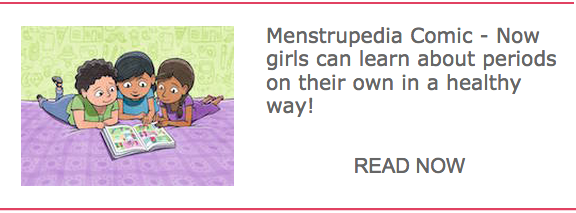The sanitary needs of menstruating women are quite similar, irrespective of their geography, class, caste, and religion. Sanitary products are very essential for women while they are menstruating. However, access to these sanitary products is, believe it or not, an issue for women. There are several reasons for poor access to the same, but the chief among them is the lack of financial means. Access to sanitary products is a poverty-related issue and poverty is omnipresent. I found something similar in a small town by the name Bowling Green in mid-west Ohio in the United States. The Bowling Green State University is in its 103rd year and enrolls approximately 18,000 students a year. The town is fairly prosperous with a predominant white population. Inspite of Bowling Green being a university town and a prosperous one at that, a conversation with the local NGOs confirmed my theory that there were numerous women that did not have enough means to access sanitary products when they were menstruating.
The above confirmation was the seed that planted the idea of ‘Keep It Flowing!’ when I was enrolled in a class called ‘Health Communication Campaigns’. For my final assignment, I designed a campaign for increasing the health of women by focusing on their menstrual health. The campaign targeted their menstrual needs because they are largely neglected. Also, there are very few selected agencies or organizations that work towards menstrual hygiene and health. A major aspect of menstrual hygiene and health is to use sanitary and correct means of menstrual hygiene products. But for that, the constraint was the easy access and inexpensive availability of sanitary products. I changed some parameters of the assignment and discussed a potential project with the Director of Women’s Center at Bowling Green State University (BGSU). In our first meeting, we came up with the name ‘Keep It Flowing!’ and an agreement that this effort was necessary and important enough to be housed in the Women’s Center. By partnering with the Women’s Center, Keep it Flowing! had found a home, which was very important for the sustainability and institutionalizing of the project.

For the administrative health campaign—Keep It Flowing!—the problem was defined as the lack of easy access and inexpensive availability of sanitary products. Thus, the quick-fix solution was to provide sanitary products to agencies and organizations doing work related to women’s health. Through these agencies, women could easily access free sanitary products. I applied a simpleRobinhood model to make this happen, wherein through outreach, we would collect sanitary products from all the people who have it or can afford it and later disseminate the collected sanitary products to the people who need it and cannot afford it directly or distribute itthrough our identified network of agencies and organizations. The campaign purpose, focus and goal were determined as below.
Campaign Purpose: Reduce health issues in women
Campaign Focus: Menstruation and its related health issues
Campaign goal: Increase the usage of hygienic/sanitary means among poor women
Through outreach, we started getting donations of sanitary products. Keep It Flowing!got a big boost when it received a huge donation of 4,000 tampons from a friend’s mom with whom I had a conversation, about the initiation of this project. The second boost for Keep It Flowing! came from the collaboration with the Panhellenic (Council for Sorority Chapters) girls. Jessica Ballomy (Vice-president-Philanthropy and Service) started a collection campaign within the thirteen chapters of Panhellenic and by the end of four weeks of collection campaign, Keep It Flowing! was approximately 5,500 sanitary products rich.
Along with the collection, the dissemination was equally important. For that,Mary and I conducted outreach and collaborated with the County (District) Health Department, Salvation Army, Cocoon shelter, Food Pantry, Youth and Young Adult Resource Center, and other organizations within university and outside it in the community, to establish routines of sustained supply of sanitary products. Keep It Flowing! is officially supported by the Division of Student Affairs, BGSU. BGNEWS helped promote the campaign by publishing stories about it in the newspaper. The Women’s Center at BGSU is the official home for the campaign. Through the women’s study programme, students can also earn internship credits by working for the campaign for a semester. Keep It Flowing!will also be promoted as a service learning project for students and in this phase of the project, the emphasis from only providing sanitary products will be augmented by creating awareness and spreading education about menstruation and menstrual health. Apart from improving the menstrual and overall health of women, the goal of this project is also to de-stigmatize and normalize menstruation. By increasing awareness and spreading education, we would also like to debunk the myths around menstruation. As a rule so far, we accept only products and not money. The logic behind this is to encourage both males and females to go buy sanitary products, which in itself is a heuristic and de-stigmatizing act.
So far, Keep It Flowing!has collected over 10,000 sanitary products and has disseminated close to 3,000 to the agencies in Bowling Green city. With the phenomenal support from the students and the community in terms of donation of sanitary products, Mary and I are confident that we will be able to take this campaign further to the state level and will be able to provide sanitary products to women in need, all across the state for free.
If you would like to help in anyway, kindly contact Arpan Yagnik at [email protected].
 Author: Arpan Yagnik is a fourth year PhD student in Health and Development Communication at Bowling Green State University. His research interests are in the role of media and communication in destigmatizing the menstrual stigma and improving the menstrual health of women. He is the founder of the Keep It Flowing Campaign. He has published two single authored peer-reviewed articles on menstruation and is a subject matter expert on menstruation for the European Journal of Obstetrics & Gynecology and Reproductive Biology.
Author: Arpan Yagnik is a fourth year PhD student in Health and Development Communication at Bowling Green State University. His research interests are in the role of media and communication in destigmatizing the menstrual stigma and improving the menstrual health of women. He is the founder of the Keep It Flowing Campaign. He has published two single authored peer-reviewed articles on menstruation and is a subject matter expert on menstruation for the European Journal of Obstetrics & Gynecology and Reproductive Biology.
Editor: Divya Rosaline
Menstrupedia Comic Book helps young girls learn about menstruation easily in a fun way! Read it for FREE here






